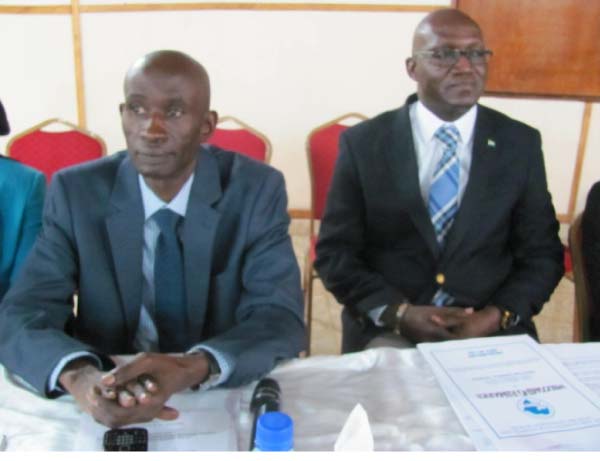
Organised by the West African Institute for Financial and Economic Management (WAIFEM), the workshop brought together financial analysts and journalists from the West African sub-region including The Gambia, to enhance their analytical and reporting skills on economic and financial issues.
“Since policies and plans adopted by governments at various levels are responsible for shaping the economy it is necessary to subject them, through analysis, to scrutiny,” said BSL financial market director Ibrahim Lamin, while delivering the keynote address on the occasion on behalf of the governor of the Central Bank of Sierra Leone.
The issue of government policies and plans is an important aspect of economic and financial analysis which affects the economy in one way or the other.
Beyond the need for analysis of individual economies and sub-economies, Mr Lamin also noted, regional, sub-regional and global economic and financial analyses are also very important.
“For instance global economic analysis has the potential to reveal growth rate of gross world product, gross regional product and gross sub-regional product over time,” he said.
“From such analyses it is possible to know the flow rate of international goods, funds and technology.”
A great challenge in economic and financial analysis especially in West Africa is the “dearth of knowledgeable” professionals.The tendency is that “all and sundry have assumed the ability and responsibility” of analyzing and commenting on government economic and financial policies.
Most of the time, Mr Lamin noted, some of these analysts undertake their analysis without understanding the basic economic theoretical underpinnings of the policies.
“Others go on to analyse without digging dip into the facts available to government functionaries, which informed the adoption of such policies and planning for such projects and programmes in the first place,” he said, adding: “Another challenge is the need for timely, accessible and quality data dissemination for economic and financial analyses and policy implementation.
“More timely and reliable data is needed in several key areas, such as the gross domestic product, inflation rates, unemployment rates, external sector and the financial sector.
In the external sector, timely and reliable data is, for example,requiredfor addressing ‘debt sustainability’ (potential ‘currency’),by focusing on external positions, external debt and reserves, Mr Lamin said, adding that in the case of financial sector soundness, for example, focus shouldbe on developing macro prudential indicators.
The main objective of the workshop is to equip participants with an excellent practical overview and insight into economic and financial markets.
In his remarks on behalf of WAIFEM Director General, WAIFEM financial sector department director Ousman Sowe said the course is also intended to update the knowledge and upgrade the skills of financial analysts in economic and financial policies with a strong emphasis on economic and financial analysis and performance monitoring.
Accordingly, the workshop has been designed to cover a number of key topics such as reviewof basic macroeconomic model; design and tools of monetary policy; coordinationof monetary and fiscal policy; interrelationships among the macroeconomic sectors; regional economicintegration:rationale, challenges and prospects; role of financial markets; fiscal policy management , the role of statistics in economic management; money laundering and financial crimes; field visits and practical exercises.
Read Other Articles In Article (Archive)
Elton Oil rewards winners with Ramadan prizes
Jul 16, 2013, 11:16 AM
Towards a Child-Centric Human Rights Culture
Sep 15, 2009, 6:55 AM


